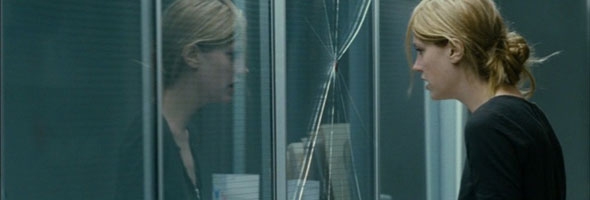In real life you don’t want to hang out with someone who’s a drag, so why sit through an entire movie focused on a woman and her misery? It’s one thing to check out a drama in which the main character has an actual problem at hand, but in Helen, the titular character’s issue is confined to her head and not just because she’s suffering with a mental illness. The gravity of her situation is never relayed clearly making it impossible to sympathize with her situation. Helen never seems sympathetic, she seems unjustifiably sad and selfish.
From the outside, Helen (Ashley Judd) seems to have it all. She’s a successful college music professor and lives in a beautiful home with her daughter, Julie (Alexia Fast), and loving second husband, David (Goran Visnjic). But inside she’s harboring a secret and when that secret surfaces, her life unravels. An overwhelming case of depression quickly escalates from short panic attacks to a condition that consumes her every waking moment. She can’t sleep, she can’t teach, she can’t function in the least. Finally David takes her to a hospital where the seriousness of her state is finally revealed. A doctor explains to David, “Your wife is not unhappy, Mr. Leonard. Your wife is ill.”
Imagine how hard this must be for David. He’s married to a wonderful woman for seven years without the slightest idea of the turmoil raging within her. Out of the blue he finds out her condition is so intense, she’s a suicide risk. Think that’s tough on him? It’s way worse for the audience. Not only do you have to deal with Helen’s depression, but also one of Helen’s music students, Mathilda (Lauren Lee Smith). The two have their first one-on-one encounter when Helen is still in a semi-sane and she comes across Mathilda losing it over the fact that the notes coming from her cello just don’t sound right. It’s easy to tell something is off with Mathilda, but later in the film it’s so evident that she’s got some serious problems, it’s downright terrifying. Even beyond her personal issues, the manner in which she interjects herself into Helen’s world is particularly creepy as she steps into the picture one day and assumes the role of Helen’s confidant, blocking David out. Mathilda lurks in dark corners, speaks cryptically and comes across as more of a villain than a friend. The more she pushes, the darker her character becomes. Even when she puts Helen at ease, it’s impossible to look at her as anything but a person who can snap at any moment.
Helen goes on her downward spiral before we even get to know her. She looks gorgeous, has a nice husband and bright kid, but that doesn’t convey anything more than she’s just a typical mom with a good job. The only character that makes a positive impact is David. At the onset, while Helen is moping around, we get a glimpse at what he’s really about at home and at work. Once things take a turn for the insane, he’s the only likable person left, so it’s instinctual to latch onto him.
Rather than simply telling the story of a woman struggling with a mental illness, writer-director Sandra Nettelbeck suffocates you with it. No matter how good her cinematography, the performances, or anything else in the movie is, it’s rendered nearly ineffective by the film’s miserable material. You won’t feel for Helen, you’ll be angry at her. Maybe if the movie moved at something other than a torturous, deliberate pace it might be bearable. It doesn’t and it isn’t. Unless you’re prepared to be needlessly drowned in another woman’s problems for nearly two hours, stay away from Helen.
Staff Writer for CinemaBlend.












